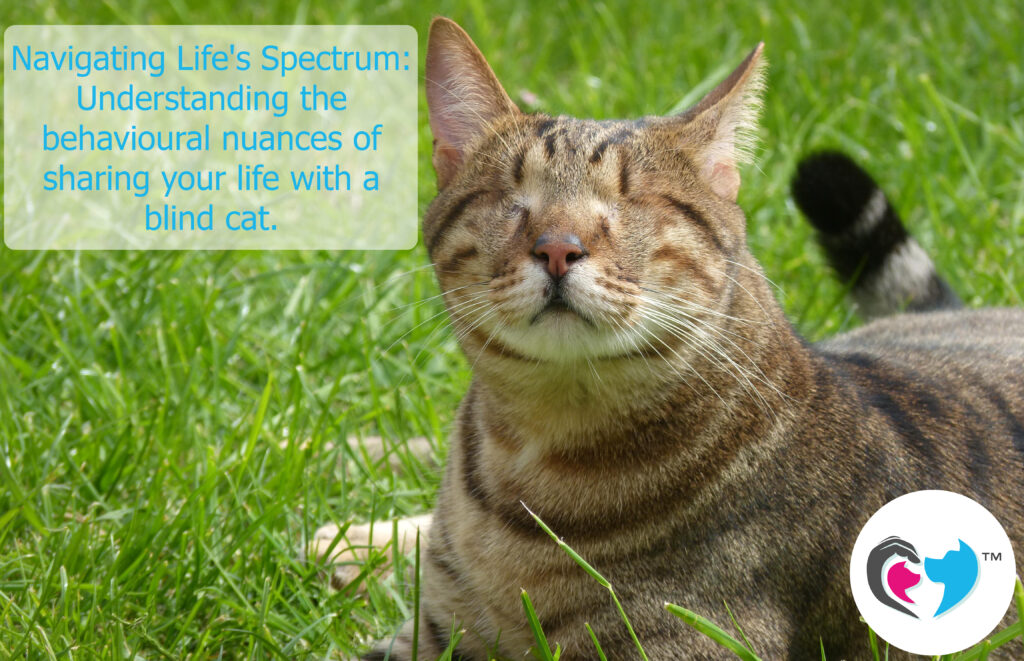Cats are known for their remarkable sensory abilities, particularly their keen sense of sight. However, some cats face the world with a unique perspective – as blind companions. Sharing your life with a blind cat comes with challenges and rewards, but understanding their behaviour and needs can pave the way for a fulfilling and enriching relationship.
Adaptability and Sensory Compensation:
Cats are incredibly adaptive creatures, and this trait is even more pronounced in blind felines. When one sense is compromised, others often compensate. Blind cats become experts in utilizing their heightened senses of smell, hearing, and touch to navigate their environment. You might observe them tapping their paws or whiskers against objects to gauge their surroundings, demonstrating their remarkable ability to create mental maps of their territory.
Dependence on Routine:
Blind cats thrive on familiarity and routine. Changes in their environment can be unsettling, so it’s essential to maintain a consistent layout and daily schedule. Avoid rearranging furniture or adding obstacles that might confuse or distress them. The more predictable their surroundings, the more confident and secure they will feel.
Unique Behaviours:
Sharing your life with a blind cat can reveal an array of unique behaviours. Many blind cats engage in ‘head-tilting,’ using their ears to ‘feel’ their way around. They might also ‘chirp’ or make soft noises as they are often more vocal than their sighted counterparts. Meowing can help them locate their human companions and communicate their needs.
Creating a Safe Environment:
Blind cats require an environment that prioritizes safety. Eliminate potential hazards like sharp corners, unstable objects, and inaccessible hiding spots. Invest in tactile toys that produce sounds or have textures they can explore through touch. Elevated perches and cat trees give them a sense of security, allowing them to express their natural instincts.
Enrichment and Play:
Blind cats benefit greatly from mental and physical stimulation. Engage them in interactive play sessions using toys that make noise or have interesting textures and smells. Puzzle feeders encourage mental engagement while satisfying their natural hunting instincts. Enrichment activities, like scent trails and treat hunts, keep their minds active and curious.
Compassionate Patience:
Caring for a blind cat requires patience and compassion. Initially, they might be cautious and tentative in their movements. Allow them to explore their space at their own pace and resist the urge to intervene unless they are in danger. With time, they will build confidence and become more adept at navigating their surroundings.
Sharing your life with a blind cat is a journey that requires understanding, patience, and a willingness to adapt. These remarkable creatures teach us about resilience and the power of adapting to life’s challenges. By creating a safe, predictable environment and providing them with the tools for enrichment and play, you can offer your blind cat a life filled with exploration, comfort, and the joy of unconditional love.





